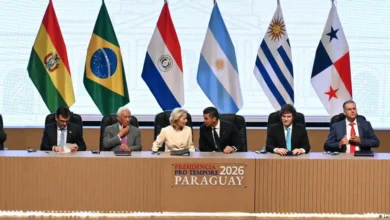UAE slams the door: 2026 visa freeze hits citizens of 9 nations amid security, diplomatic jitters
The ban, insiders say, stems from a convergence of national security concerns, diplomatic tensions, and lingering public health considerations. While not a blanket travel ban, it blocks new applications for both tourist entry and employment permits from the listed countries. Nationals who already hold valid visas may continue to live and work in the UAE without disruption, the Times of India reports.

In a dramatic policy shift, the United Arab Emirates has reportedly suspended the issuance of tourist and work visas for citizens of nine countries across Africa and Asia, including Bangladesh, Uganda, and Afghanistan.
According to a confidential immigration directive circulating within government channels, the freeze is set to take effect in 2026 and will remain in place until further notice. Though not officially confirmed by the Emirati authorities, the sweeping measure is already sending ripples through affected communities and international observers.
The ban, insiders say, stems from a convergence of national security concerns, diplomatic tensions, and lingering public health considerations. While not a blanket travel ban, it blocks new applications for both tourist entry and employment permits from the listed countries. Nationals who already hold valid visas may continue to live and work in the UAE without disruption, the Times of India reports.
The nine countries named in the circular are Afghanistan, Libya, Yemen, Somalia, Lebanon, Bangladesh, Cameroon, Sudan, and Uganda. Together, their nationals represent a significant portion of the UAE’s expatriate workforce and travel inflows, making the policy’s economic and humanitarian implications far-reaching.
Security risks are cited as the primary motivator behind the freeze. Analysts suggest that concerns over forged documents, unlawful migration, and potential terror-related threats have pressured Emirati authorities to tighten entry controls. Officials describe the suspension as a preventive step rather than a retaliatory one.
Diplomatic factors also appear to be at play. The UAE has occasionally used immigration levers to reflect geopolitical alignments or signal displeasure in bilateral relations. Observers note that some of the countries on the list have strained or complex ties with Abu Dhabi.
Public health remains another dimension. Even years after the COVID-19 pandemic, residual health screening measures continue to shape migration governance. Policymakers are reportedly wary of vulnerabilities exposed during the crisis, particularly those linked to cross-border movement from regions with fragile healthcare systems.
The UAE has historically balanced its need for foreign labor with tight control over immigration. However, this latest directive underscores a more cautious turn, prioritizing security and internal stability over the inflow of manpower from certain regions.
For many affected families and jobseekers, the freeze represents a sudden disruption to long-standing migration patterns. The UAE has long been a prime destination for workers from South Asia and Africa, who contribute to sectors ranging from construction to domestic services.
Economists warn that the decision could drive labor shortages in key industries while also straining remittance-dependent economies in the affected countries. Bangladesh and Sudan, for instance, rely heavily on remittances from Gulf-based workers.
Human rights advocates have raised concerns over the humanitarian fallout. They argue that blanket measures risk unfairly penalizing ordinary citizens rather than addressing targeted risks. The absence of official explanation or clear timelines for review only heightens uncertainty.
For now, the 2026 visa freeze signals a recalibration of the UAE’s migration policy in line with its broader security and geopolitical agenda. Whether temporary or long-term, the move is a reminder that immigration remains one of the Gulf’s most potent policy tools—capable of reshaping not only labor markets, but also diplomatic relationships across continents.
Follow The Times Kuwait on
X, Instagram and Facebook for the latest news updates




























